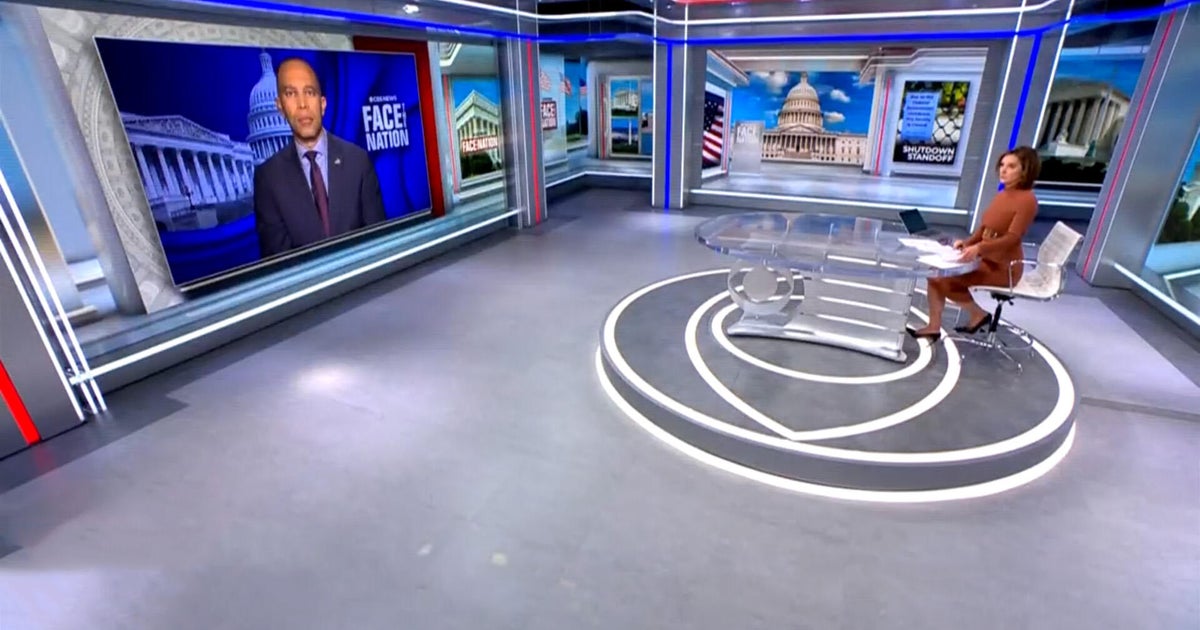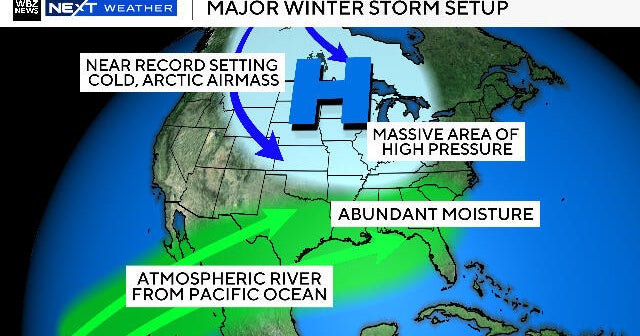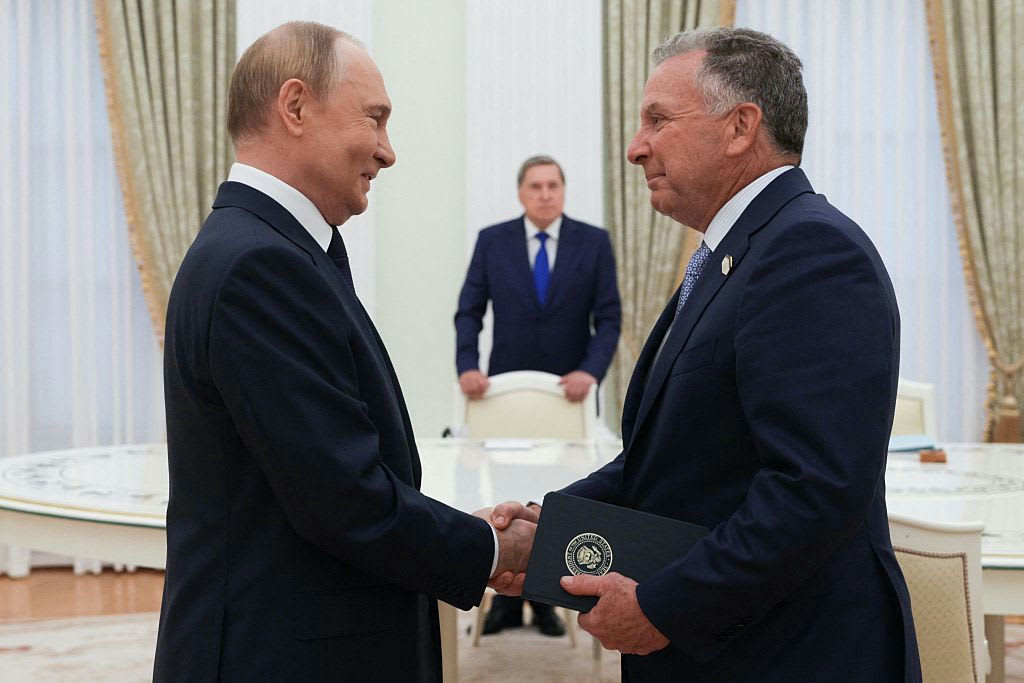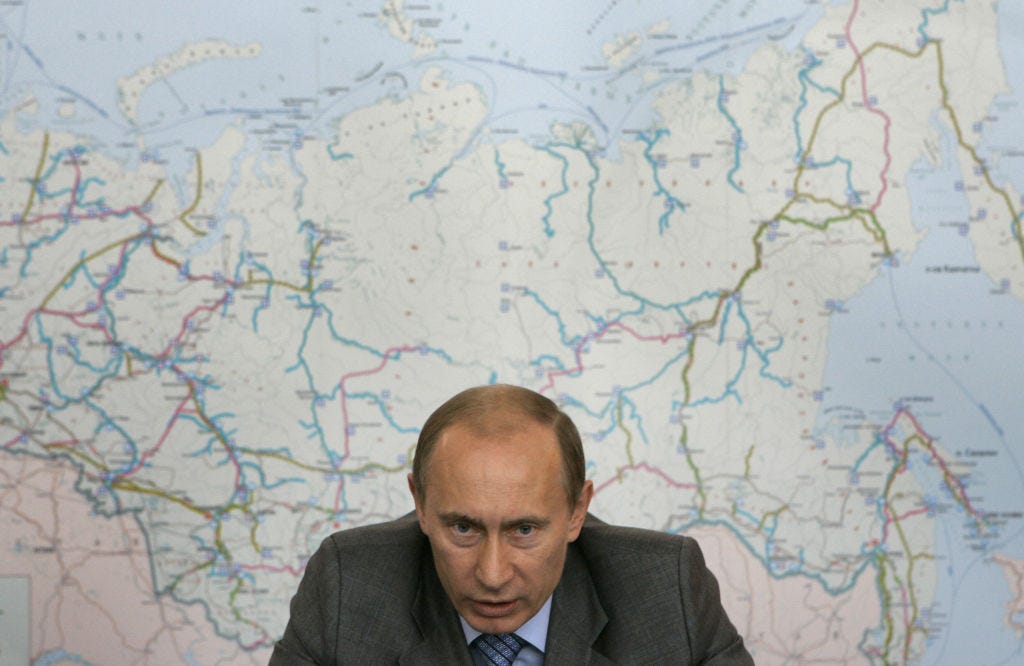Transcript: Secretary of State Antony Blinken on "Face the Nation," February 20, 2022
The following is a transcript of an interview with Secretary of State Antony Blinken that aired Sunday, February 20, 2022, on "Face the Nation."
MARGARET BRENNAN: We go now to Secretary of State Antony Blinken, who was also in Munich and is here in Washington this morning. Good morning to you, Mr. Secretary.
SECRETARY ANTONY BLINKEN: Good morning, MARGARET.
MARGARET BRENNAN: President Biden says Vladimir Putin has made up his mind to invade, but we spoke with Russia's ambassador earlier this morning, and he insists there's no invasion, no plan to invade, and it only has troops on its own soil. Do you have reason to believe Vladimir Putin is changing his mind?
SEC. BLINKEN: No, we don't. And, you know, I was in front of the U.N. Security Council just a couple of days ago, and I made a very simple ask of the Russians: tell the world, without equivocation, without deflection, that you will not invade Ukraine. Not we don't have a plan to invade Ukraine, not we don't have an intention to invade Ukraine, but we will not invade Ukraine. And the Russian representative either couldn't or wouldn't say that, and I suspect the ambassador didn't say that either. So as President Biden said the other night, everything we're seeing tells us that the decision we believe President Putin has made to- to invade is moving forward. We've seen that with provocations created by the Russians or separatist forces over the weekend, false flag operations. Now the news just this morning that the quote unquote exercises Russia was engaged in in Belarus with 30,000 Russian forces that were supposed to end this weekend, will now continue because of tensions in eastern Ukraine. Tensions created by Russia and the separatist forces it backs there.
MARGARET BRENNAN: We understand President Biden is calling a meeting of his National Security Council today. What decisions will be made at that meeting?
SEC. BLINKEN: Well, it's an opportunity to review the- the latest information, the latest intelligence to- to check signals to check plans. I just came back from Munich with the vice president. She led our delegation there to make sure that we are in lockstep with allies and partners on everything that we're going to do, both to see if we can still prevent President Putin from carrying forth his decision and if not making sure that we're fully coordinated with allies and partners on the response. And the answer is we are. We had a meeting of the G7 countries again in Munich, the leading democracies in the world. They've reiterated that massive consequences will follow if- if President Putin carries forth with the- the aggression. And meanwhile, we have been in the- in the government very tightly and closely coordinated over over many months and doing the same thing with allies and partners.
MARGARET BRENNAN: Well, you know, when we last spoke on January 23rd, you told me that if Russia engages in other tappet tactics short of invasion, hybrid action, cyber attacks, efforts to bring a government down, there will be a swift calibrated and united response. Aren't they doing all of those things right now? And where is the U.S. response?
SEC. BLINKEN: First of all, we've taken significant action over the- in recent months supplying Ukraine with more defensive- lethal defensive assistance–
MARGARET BRENNAN: But, those cyber attacks were just attributed by the White House on Friday. Those just happened.
SEC. BLINKEN: And we've worked closely with- with Ukraine to- to ward them off to get back up and running. We've now made an attribution to- to Russia for the cyber attacks. We're looking closely at the response that that- that that may call for and we're doing all of this in coordination with allies and partners. So we've been very clear that both in terms of the steps that we've already- already taken in terms of supporting Ukraine and its defense, in terms of bolstering its economy, in terms of already moving forces to reinforce NATO on its eastern flank, as- as well as making preparations to- to do more of that. If Russia commits the- the aggression that- that may be in train, all of that has been part of our- our plan and we're carrying it forward.
MARGARET BRENNAN: You said that you will meet with Russia's top diplomat, but only if Russia does not invade.
SEC. BLINKEN: That's right.
MARGARET BRENNAN: But it seems contradictory because what you are saying is that's tanks, and that's planes. But does that mean Russia has carte blanche to continue cyber attacks, to continue funding separatists in the east. If they keep tensions at this low boil, is that acceptable to you? Will you still sit down and negotiate?
SEC. BLINKEN: It's- it's not- well two things. There are two separate things there. First of all, it's not acceptable, and it's one of the things that we've talked about in some detail with allies and partners this weekend. That is a scenario by which Russia just keeps things at a low or medium boil. And there will be a response to that, too. But in terms of engaging Russia, my job as a diplomat is to leave absolutely no stone unturned to see if we can prevent a war. And if there's anything that I can do to do that, I'm going to do it. President Biden has made very clear that he's prepared to- to meet President Putin at any time, in any format, if that can help prevent a war. And as long as- even if the die is cast, until it's settled, until we know that the- the tanks are rolling, the planes are flying and the aggression has- has fully begun, we're going to do everything we can to prevent it. But we're prepared either way and we're prepared with a response that will have massive consequences for Russia if it actually carries this through.
MARGARET BRENNAN: You have consistently described sanctions as a deterrent, but I know you heard President Zelensky really light into the Western allies in that speech in Munich, and he accused you and the West of appeasement of Vladimir Putin over the past few years. He said we don't need more sanctions after the bombardment or after we have no borders or after we have no economy or after parts of our country will be occupied. What are you waiting for? What are you waiting for?
SEC. BLINKEN: I can't speak, MARGARET, to the last few years. I can speak to the last few months into the last year. And in that period of time, the United States, again, has provided to Ukraine more assistance, including lethal military assistance, defensive assistance, more in the past year than at any time in any previous year.
MARGARET BRENNAN: Will that continue after an invasion happens?
SEC. BLINKEN: Let me finish if I may, please. Thank you. We have rallied other countries to stand in support of Ukraine as well to provide their own assistance. We've rallied other countries to make clear and to put together in great detail the massive consequences that will befall Russia if it engages in this aggression. The purpose of that is to do everything we can to deter it, to prevent a war, to deter the aggression. And once you trigger the sanctions, you lose the deterrent effect. And as long as there is still even a minute's worth of time in which we can deter and prevent a war, we're going to try to use it. And part of that is making clear, as the G7 did this weekend, that those consequences are going to follow. And we don't want to pull the trigger until we have to because we lose the deterrent effect. At the same time, we also don't want to detail in public exactly what we're going to do because that will forewarn Russia. It will be able to prepare more effectively to try to mitigate the sanctions. So all of this is- is very well thought through. And look, I recognize President Zelenskyy is in a very difficult position as the leader of a country that is under siege by Russia. We are doing everything we can to both help Ukraine defend itself and to make clear what will happen to Russia if it undertakes this aggression.
MARGARET BRENNAN: When I spoke with the Russian Ambassador, he referred to Crimea, that part of southern Ukraine that was annexed by Russia in 2014, as part of the Russian Federation. Will the U.S. in any way consider recognizing that- ceding that territory or any territories in the east of Ukraine as a diplomatic way out to avoid a larger war?
SEC. BLINKEN: No.
MARGARET BRENNAN: No. Hard stop. That is not up for negotiation?
SEC. BLINKEN: That's correct.
MARGARET BRENNAN: The president has said that the United States will continue to support Ukraine in the future after an invasion. If there is an occupation, does that mean the United States is committed to funding and arming an insurgency?
SEC. BLINKEN: President said that we will, in the event of an invasion, double down on our support for Ukraine. And that means in terms of security assistance, economic assistance, diplomatic assistance, political assistance, humanitarian assistance, you name it.
MARGARET BRENNAN: Secretary Blinken, good luck this week. Thank you for your time this morning.
SEC. BLINKEN: Thanks, MARGARET. Good to be with you.
MARGARET BRENNAN: FACE THE NATION, will be back in one minute. Stay with us.





